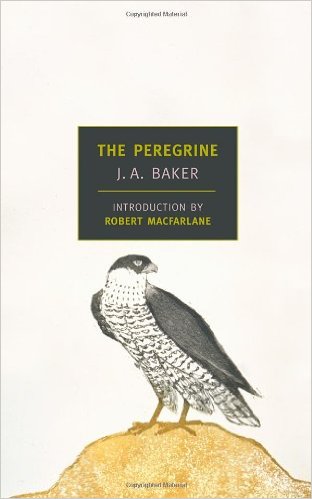What is, is now
One of the many books I am reading at the moment is The Peregrine by J.A. Baker.
It’s a bird-watching diary written by a man who (according to the intro) is in the last year of his life and decides to devote it to watching falcons.
The book is just day after day after day of falcons killing birds.
October 21st
Falcon killed a bird.
October 22nd
Falcon killed a bird.
October 23rd
Falcon killed a bird.
Every now and again, the falcon will fail to kill a bird or eat a mouse instead, but that’s pretty much the whole plot right there. Why read such a book? You might wonder.
The answer is language.
I read somewhere that Nabokov wrote Lolita to demonstrate that it’s possible to write beautifully even about a disgusting topic like child abuse. I think Mr. J.A.Baker had the same kind of idea in mind. Like a jazz quartet that plays the same phrase over and over for hours on end to see how many different ways they can say the same thing the author says “falcon kills bird” like The Grateful Dead improvise a solo.
Here’s a sample.
February 10th. This was a day made absolute, the sun unflawed, the blue sky pure. Slate roofs and crows’ wings burned white like magnesium. The shining mauve and silver woods, snow-rooted, bit sharply black into the solid blueness of the sky. The air was cold. The wind rose from the north, like cold fire. All was revealed, the moment of creation, a rainbow poured upon rock and shaped into woods and rivers.
He hovered, and stayed still, striding on the crumbling columns of air, curved wings jerking and flexing. Five minutes he stayed there, fixed like a barb in the blue flesh of the sky. His body was still and rigid, his head turned from side to side, his tail fanned open and shut, his wings whipped and shuddered like canvas in the lash of the wind. He side-slipped to his left, paused, then glided round and down into what could only be the beginning of a tremendous stoop. There is no mistaking the menace of that first easy drifting fall. Smoothly, at an angle of fifty degrees, he descended; not slowly, but controlling his speed; gracefully, beautifully balanced. There was no abrupt change. The angle of his fall became gradually steeper till there was no angle left, but only a perfect arc. He curved over and slowly revolved, as though for delight, glorying in anticipation of the dive to come. His feet opened and gleamed golden, clutching up towards the sun. He rolled over, and they dulled, and turned towards the ground beneath, and closed again. For a thousand feet he fell, and curved, and slowly turned, and tilted upright. Then his speed increased, and he dropped vertically down. He had another thousand feet to fall, but now he fell sheer, shimmering down through dazzling sunlight, heart-shaped, like a heart in flames. He became smaller and darker, diving down from the sun. The partridge in the snow beneath looked up at the black heart dilating down upon him, and heard a hiss of wings rising to a roar. In ten seconds the hawk was down, and the whole splendid fabric, the arched reredos and immense fan-vaulting of his flight, was consumed and lost in the fiery maelstrom of the sky.
And for the partridge there was the sun suddenly shut out, the foul flailing blackness spreading wings above, the roar ceasing, the blazing knives driving in, the terrible white face descending, hooked and masked and horned and staring-eyed. And then the back-breaking agony beginning, and snow scattering from scuffling feet, and show filling the bill’s wide silent scream, till the merciful needle of the hawk’s beak notched in the straining neck and jerked the shuddering life away.
And for the hawk, resting now on the soft flaccid bulk of his prey, there was the rip and tear of choking feathers, and hot blood dripping from the hook of his beak, and rage dying slowly to a small hard core within.
And for the watcher, sheltered for centuries from such hunger and such rage, such agony and such fear, there is the memory of that sabring fall from the sky, and the vicarious joy of the guiltless hunter who kills only through his familiar, and wills him to be fed.

